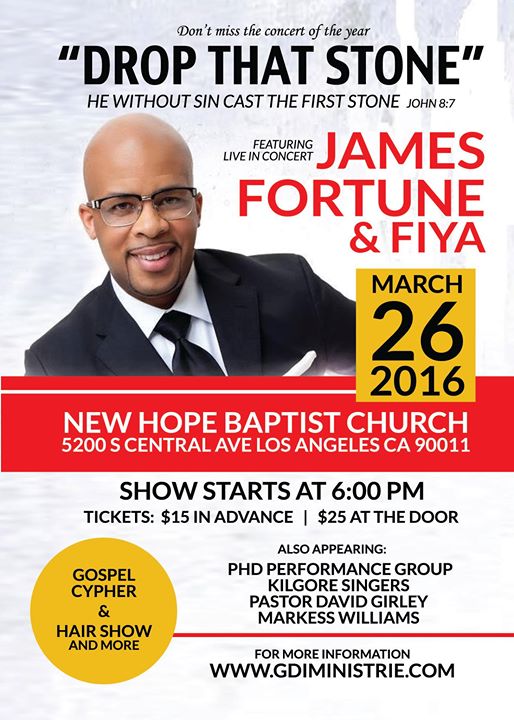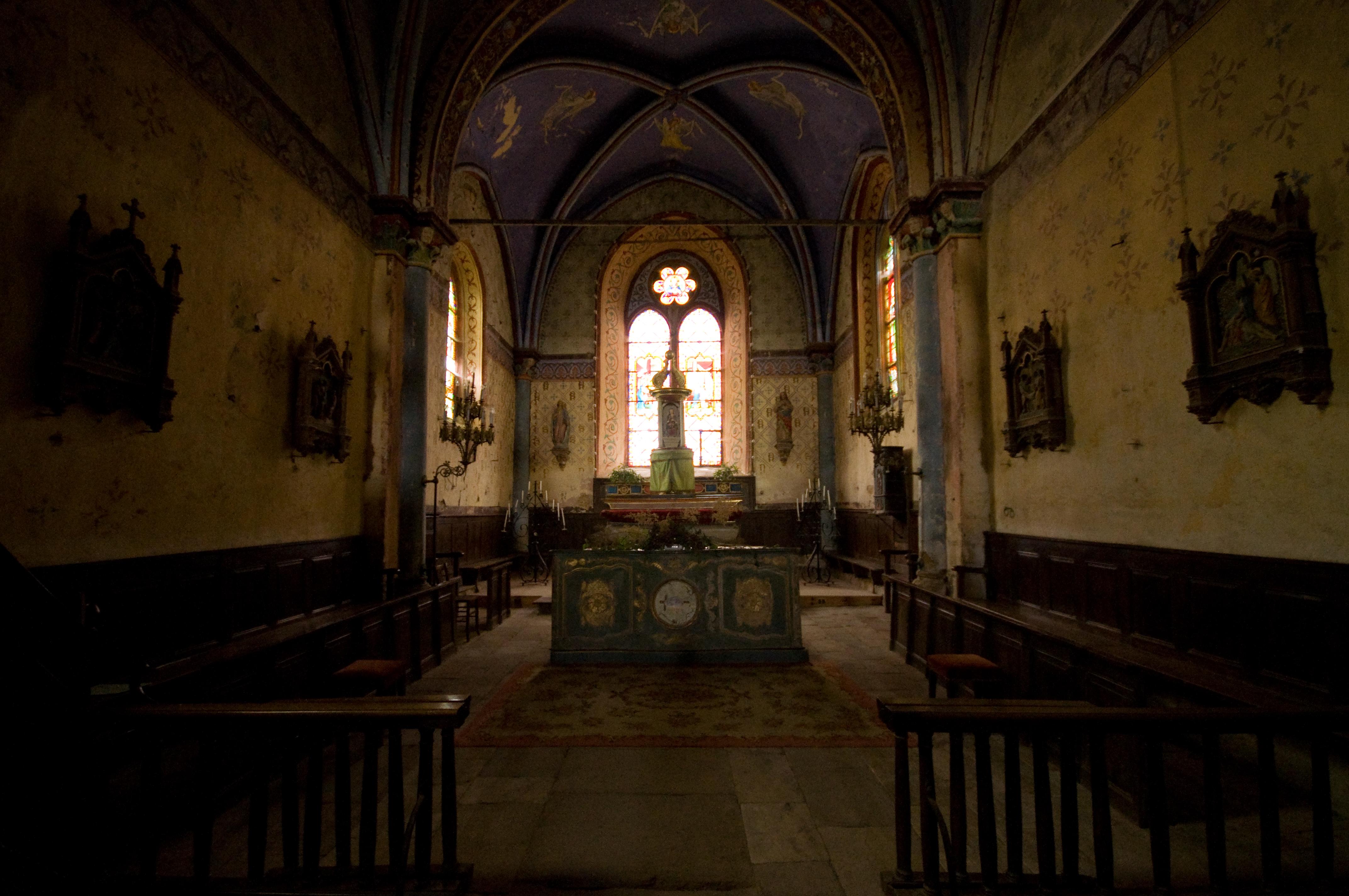In March, gospel artist James Fortune pled guilty to assaulting his wife back in 2014. The well publicized details of the case are ugly—Fortune struck her with a vanity bar stool, kicked, and threw her against the wall. But an additional ugly event, one deeply symptomatic of the Black church’s domestic violence problem, will go unnoticed.
As of the writing of this article, tickets were still on sale for a James Fortune-headlined, “Drop that Stone” concert at New Hope Baptist Church in Los Angeles on March 26th. Citing the scripture John 8:7, advertisement for the concert reminds attendees, “He without sin cast the first stone.”

Instead of wanting to throw a stone, the concert made me want to throw up.
It’s well documented that Black churches all across America are filled with faithful Black women. Black men, less likely to remain churched in young adulthood, are treated as an endangered species—prized, cared for, nurtured. Many programs fostered by Black churches seek to answer these questions: How do we further engage young Black men in the church? What can the Black church do to promote healthy Black families with men at the helm?
I applaud and support these measures. Churches need Black men as much as they do women. What they do not need, however, is to sacrifice the well-being of women to retain abusive men. Churches often center abusive fathers and husbands, emphasizing a need to be restored to their families and church communities. This puts pressure on traumatized women to prioritize their abuser’s spiritual healing over their own. Indeed, on January 25, 2015, James Fortune held a “Restoration Praise Celebration” concert before his trial had even commenced.
Arguably, the church can be a place for hurting men and women to be made whole. But I fear the church conflates restoration with elevation. It is one thing for a community to welcome someone back into the fold after they have renounced their offense. It is another to push an abuser back into the spotlight and sell tickets to his “homecoming.”
On a smaller scale, it happens every weekend in churches across the country.
But this is what we have always done in the Black church. We silence women who are suffering from inter-partner violence by urging them to mend families they did not break. We elevate abusers without concern for the physical or emotional safety of Black women.
For eight years, I belonged to a Black church that offered support programs for battered women and hosted Domestic Violence Awareness month events every October. I felt proud. We were doing something in the community. Nothing prepared me to watch a married woman from my church stand on stage and proclaim herself a survivor of ongoing domestic violence at the hands of her husband. She lifted a shaky finger and pointed him out in the congregation. He stood frozen with an offering plate in his hand.
Her admission did nothing to affect his status in the church. He remained an usher, just as he had always been.
I come from a family with deep roots in the Black church. But my grandmother suffered abuse at the hands of my grandfather. I still feel dismayed that my Christian great-grandmother would send her battered daughter back to an abusive husband whenever she mustered the courage to leave him.
But this is what we have always done in the Black church. We silence women who are suffering from inter-partner violence by urging them to mend families they did not break. We elevate abusers without concern for the physical or emotional safety of Black women.
James Fortune is walking away from this legal hiccup relatively unscathed. He faces five years of probation, five days in jail, and must stay away from his wife. At his sentencing, she urged him to seek help for his anger issues. If Fortune’s own wife has indicated he needs additional help, why does the church consider him fully restored? Who has reached out to restore his wife’s faith in a community of believers that value her husband’s talent over her pain?
New Hope Baptist hosting a “Drop That Stone” concert is implicitly warning Black women that domestic violence is not an egregious enough offense to ask James Fortune to sit down. This is not about judgment; this is about safe, sacred spaces. Domestic abuse in the church is not a stone that we can simply skip over. It is a boulder that destroys men and women’s lives. Belatedly, after an outcry, New Hope Baptist agreed to offer information for victims of inter-partner violence at the concert.
But James Fortune will still be onstage, in the spotlight. And as long as he remains there, he will be a symbol of how unsafe the Black church can be for those who likely need it the most.
